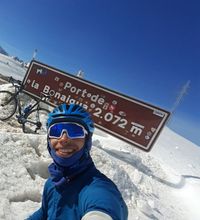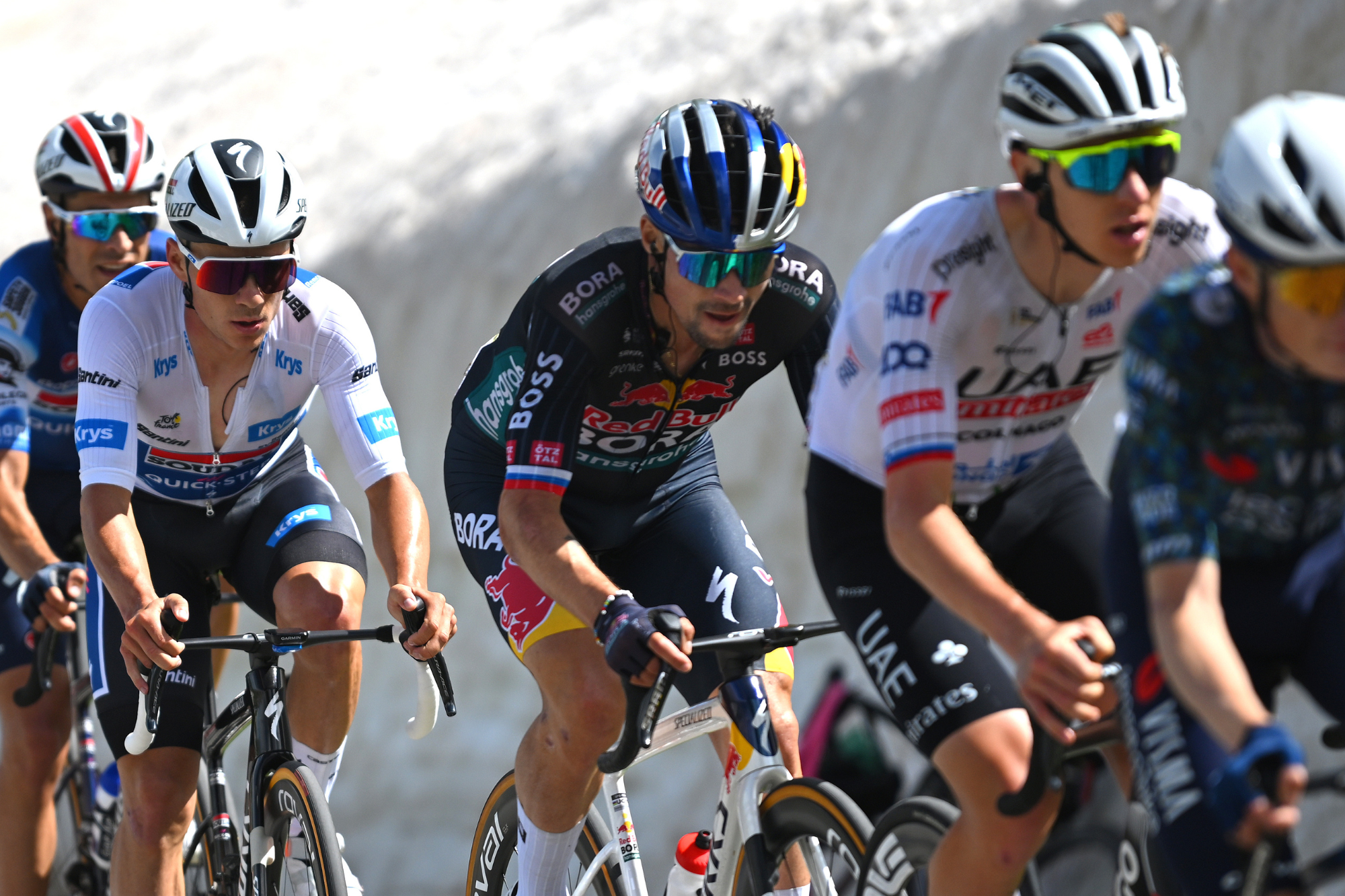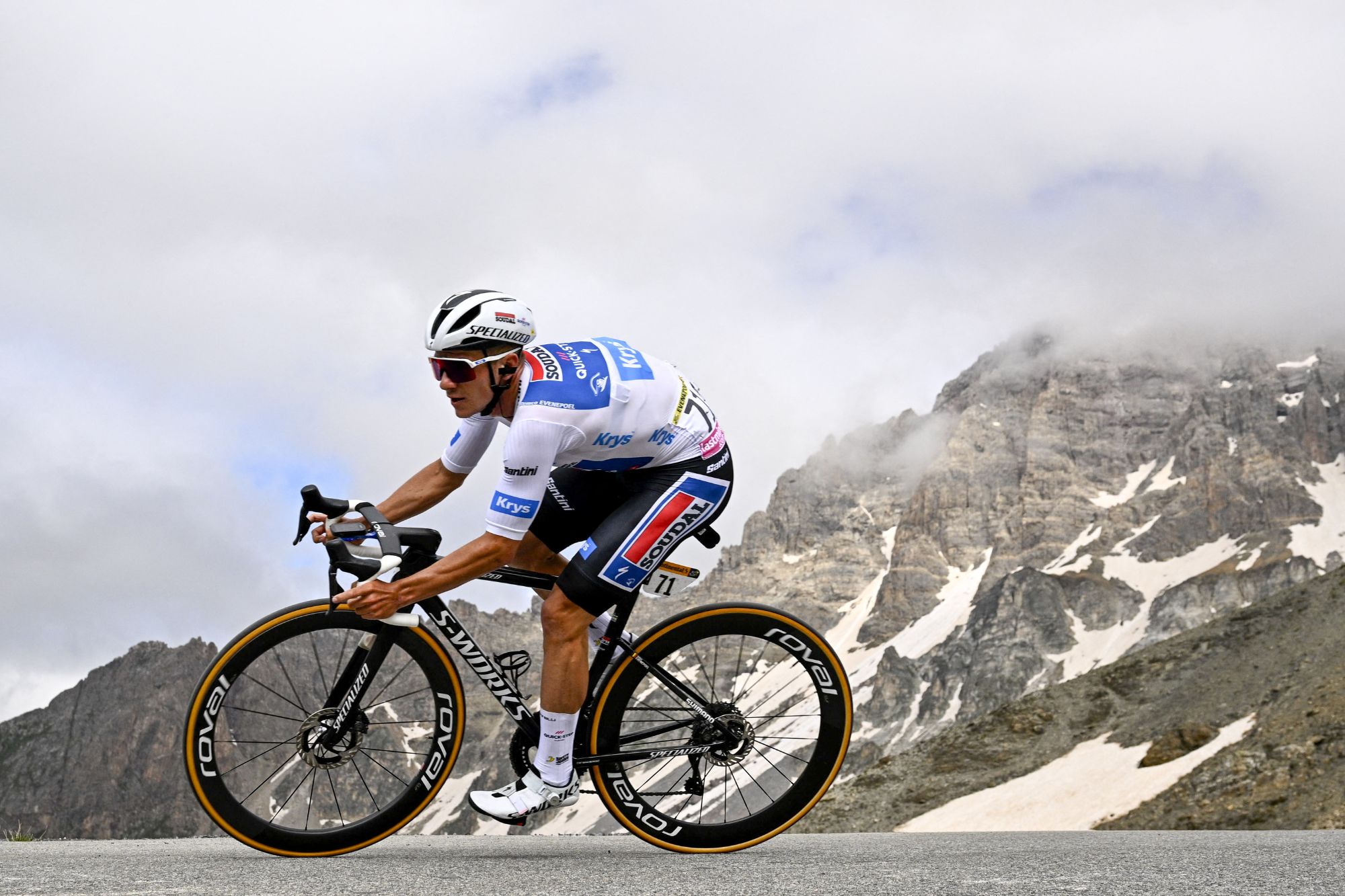Weaker teams and descending fears: Tadej Pogačar's rivals respond to stage four Tour de France losses
Remco Evenepoel is the closest to Tadej Pogačar in the GC but faces a big challenge to overhaul the Slovenian in Friday's time trial


The latest race content, interviews, features, reviews and expert buying guides, direct to your inbox!
You are now subscribed
Your newsletter sign-up was successful
Tadej Pogačar's rivals had just suffered their first notable and painful defeat at the 2024 Tour de France, but their immediate reaction was not to show disappointment, rather rustle around their bag of go-to post-race statements and deliver them with the usual effusiveness.
“I’m satisfied with today,” Primož Roglič said after finishing 35 seconds behind Pogačar in Valloire, but ceding an additional 18 seconds in bonus seconds.
Defending champion Jonas Vingegaard, who was level on time with Pogačar at the start of the day, shipped 37 seconds. Never mind, he said, “our day will come”. Similar words were uttered from Remco Evenepoel, into second but with a 45-second deficit to the yellow jersey. “The GC is going as planned,” he said. “It’s been a good start for us.”
Dig a little deeper into their proverbial reflection bag, though, and the tone was somewhat different. It’s not exactly a revelatory declaration, but Evenepoel talked about Pogačar “clearly [being] the strongest in the field” and his inevitable attack being a “ticking time bomb.” The Belgian's Soudal Quick-Step sports director Tom Steels went one step further. “I think Pogačar is a bit out of the competition,” he said, rather ominously.
The inquiry into Pogačar gaining, not only a substantial, but a psychologically significant amount of time over his rivals then began to explore the whys.
The fact that he increased his lead to his competitors by almost 30 seconds on the descent from the Col du Galibier to the finish in Valloire suggests that the effects of the Itzulia Basque Country crash in April that resulted in Vingegaard, Evenepoel and Roglič all suffering injuries continue to linger. “Maybe the last bit of confidence is still not there,” Visma-Lease a Bike’s DS Grischa Niermann tellingly said of Vingegaard.
One hundred metres down the road and back towards the ski village, Rolf Aldag, Roglič’s DS at Red Bull-Bora-Hansgrohe, addressed the question head on. “It’s logical that once they’ve discovered pain and such an impact, maybe a rider is a little bit more careful [on a descent].
The latest race content, interviews, features, reviews and expert buying guides, direct to your inbox!
“The self defence part of the brain says, ‘You did it once, don’t do it twice.' You don’t actively need to think about it, but it’s not completely unrealistic that it takes a little bit of time to get back into the rhythm of descending in races and under the stress of the Tour de France. Big descents in the Tour de Suisse [you can do], but in the Tour you have immense tension.”

Then came another aspect of the review that analysed the strength and might of Pogačar’s team against his rivals, who are already on the backfoot after just 19 hours of racing.
“The multiple leader strategy on every team blew up except UAE,” Aldag said, referencing Red Bull’s Aleksandr Vlasov and Jai Hindley losing time, but Juan Ayuso and João Almeida, teammates of Pogačar, remaining in the top eight; Evenepoel’s super-domestique Mikel Landa is seventh, 94 seconds adrift .
“Obviously it shows there’s a lot of strength in his [Pogačar’s] team and that they controlled it. They are super strong," Aldag reflected. "If Tadej wouldn’t have the team he has, then you’d be like, ‘How do you fight him? How do you go early or send someone up the road to keep them busy? But right now that’s completely unrealistic because in the top-10 he has four [sic - three] more teammates.”
The honesty was a reflection of the mood among the race. A lead of 45 seconds for Pogačar is far from comfortable – Vingegaard has beaten his arch-rival by margins far bigger on multiple occasions – but already the Slovenian is on the right course to complete the Giro-Tour double.
That said, a rummage around the positivity bag did produce a smattering of upbeat remarks. “If you don’t talk yourself up, you fall into a depression,” Aldag said. “You’re always trying to see their weaknesses and where you can beat the others, and you need to because if everything is hopeless, it’s grey and raining the whole day.”
Steels, Evenepoel’s DS, wasn’t quite as poetic, but he towed a similar line. “Between the [Critérium du Dauphiné] and here there was still some work to do after [Evenepoel’s broken] collarbone, but now we don’t have to be afraid – his condition is there. We can be confident and trust in ourselves.”
Looking ahead to Friday's 25km time trial, a discipline in which Evenepoel is world champion, Soudal-QuickStep see reasons to be optimistic. “It means Remco could gain some time on him [Pogačar] or they will stay the same,” Steels said.
And yet, despite the bullishness, there was an underlying tone that Pogačar has inflicted, if not quite the killer blow, but a punch in multiple stomachs.
The mood especially outside Visma-Lease a Bike’s bus was flat and downbeat – in stark contrast to the previous two Tours. Vingegaard scored Pogačar as having a one-nil lead. Already, his rivals are banging their heads together to figure out where and how they can conjure a potent counterattack.
A freelance sports journalist and podcaster, you'll mostly find Chris's byline attached to news scoops, profile interviews and long reads across a variety of different publications. He has been writing regularly for Cycling Weekly since 2013. In 2024 he released a seven-part podcast documentary, Ghost in the Machine, about motor doping in cycling.
Previously a ski, hiking and cycling guide in the Canadian Rockies and Spanish Pyrenees, he almost certainly holds the record for the most number of interviews conducted from snowy mountains. He lives in Valencia, Spain.
